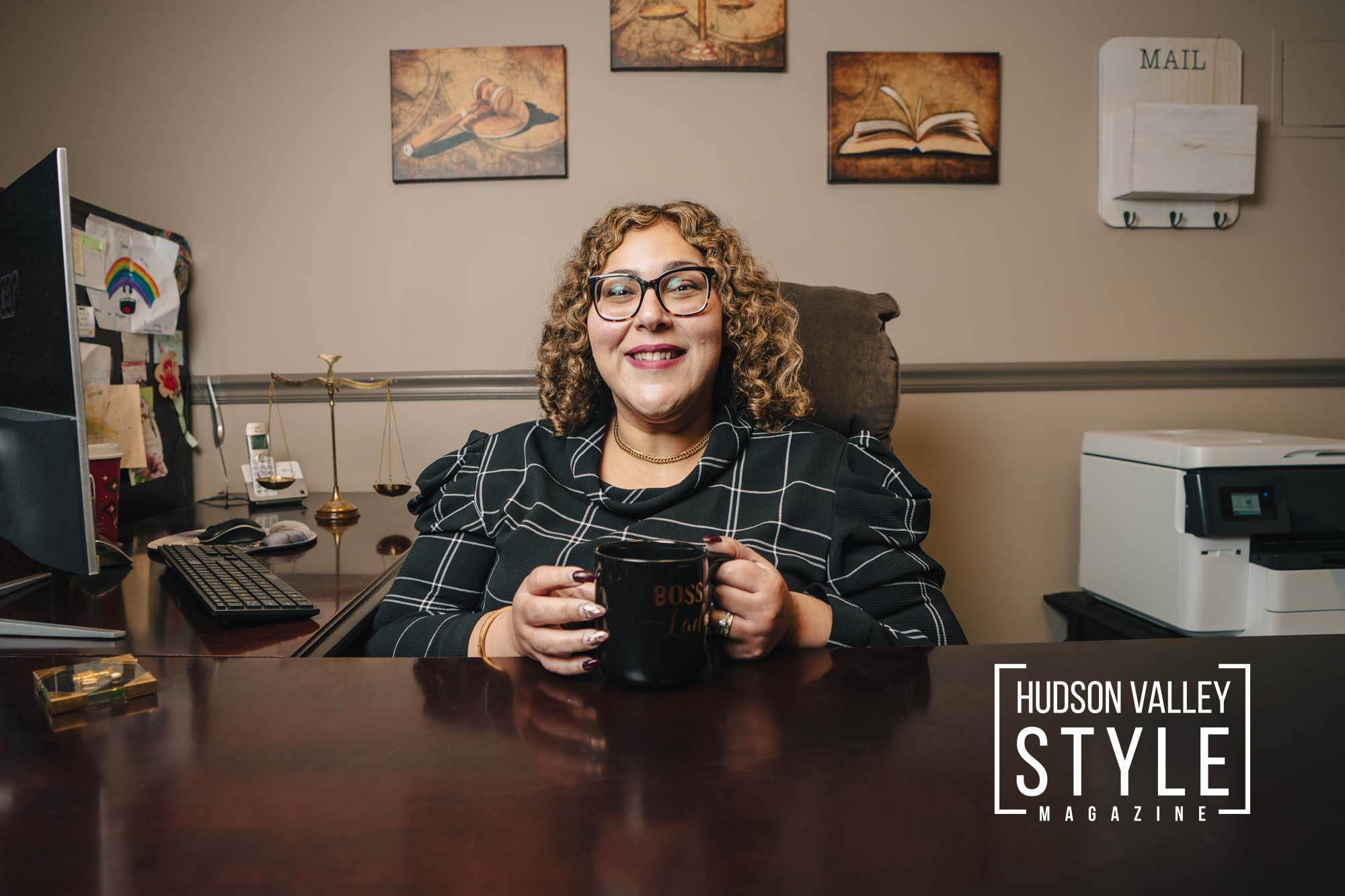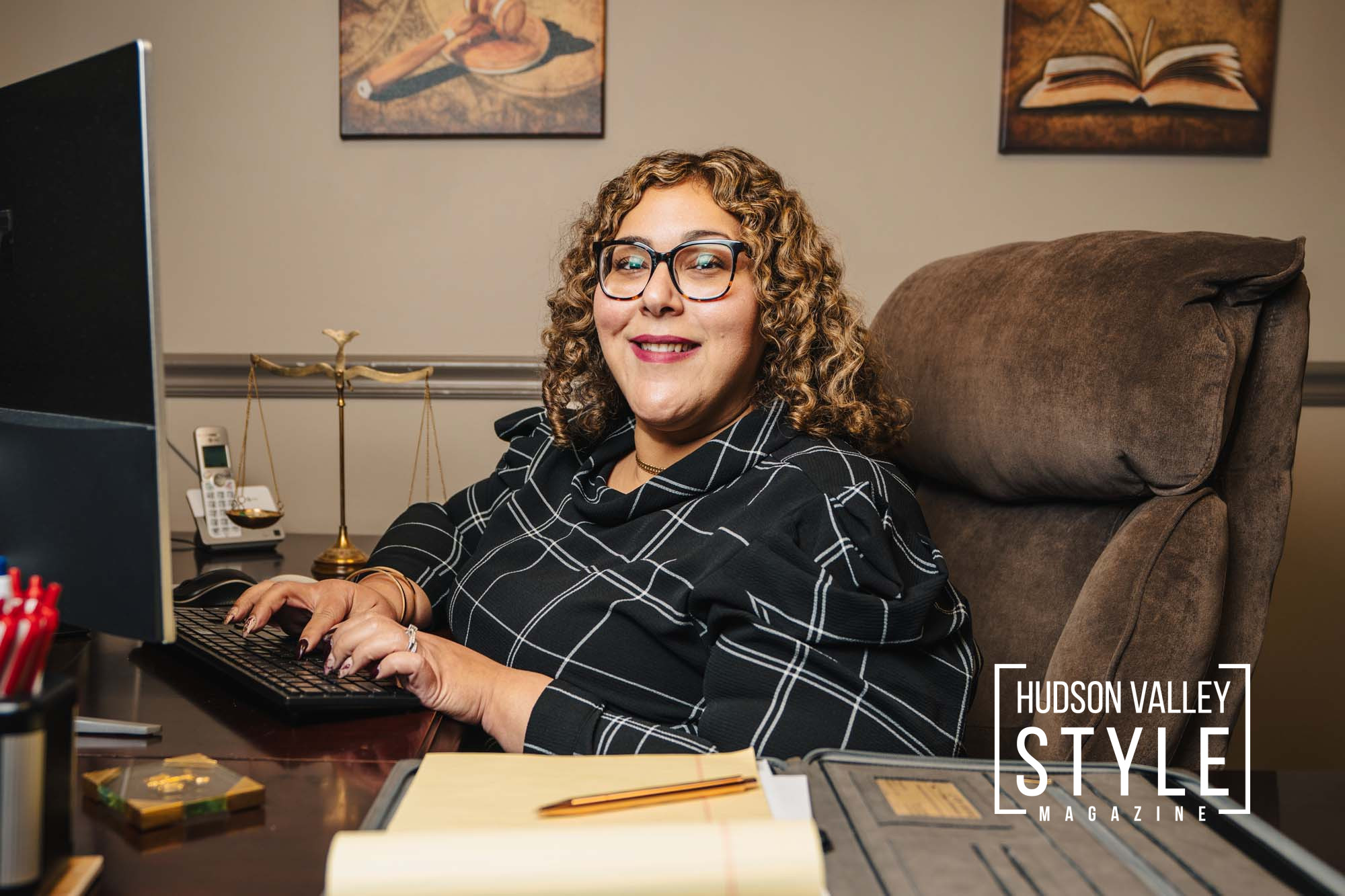In the current financial climate involving inflation and higher than before interest rates sweeping across the United States, including across the beautiful and beloved Hudson Valley, personal and commercial bankruptcies among the various chapters of bankruptcy are on the rise since 2022 as highlighted by Epiq Bankruptcy’s Research.
The economic downturn has left many individuals and businesses grappling with financial turmoil, often through no fault of their own and based on unfortunate life circumstances of loss in job or income, economic inflation, health issues, divorce, and more. Yet, the path to relief remains for many, although some may have misconceptions and confusion on how to navigate. Hudson Valley Style Magazine, in collaboration with esteemed Hudson Valley Bankruptcy Attorney Dena Ghobashy, Esq. of The Law Office of Dena Ghobashy, PLLC launches an enlightening series aimed at demystifying bankruptcy protection: “Navigating the Financial Storm: A Beacon of Hope with Dena Ghobashy, Esq.”
Navigating the Financial Storm: A Beacon of Hope with Dena Ghobashy, Esq. – Presented by The Law Office of Dena Ghobashy, PLLC
This series aspires to be a point of hope and understanding for those experiencing financial uncertainty, informing on bankruptcy protection and dispelling misinformation. Dena Ghobashy, Esq. with her profound expertise rooted in 11 years of navigating the intricacies of bankruptcy and immigration law, will guide our readers through demystifying stereotypes, trying to give a general understanding of the process, and giving hope to financial wellness. Her career, after earning a bachelor’s degree in political science from Pace University and a Juris Doctor from the University of Illinois College of Law, before contributing her talents to DLA Piper, has helped hundreds of people throughout the Hudson Valley and beyond in the areas of immigration and bankruptcy law. In 2014, Dena Ghobashy, Esq. began her solo practice in Poughkeepsie, NY, dedicating herself to the community not only through her legal practice but also by encouraging the next generation as a volunteer basketball and soccer coach.
“Navigating the Financial Storm” shall serve as a beacon of hope for those who may not know where to start during one of the most stressful times of their life, right out of a pandemic and into economic frustration or crises. Through this series, we hope for readers to gain not only valuable insights into bankruptcy protection but also an understanding of their economic forces at play. The focus of the articles is to demystify bankruptcy and uncover the possibility of financial recovery through bankruptcy. Let’s get right into it, here is Dena Ghobashy, Esq. and her first article in the four-part series:

Bankruptcy Chapters 7 vs. 13 and Can I Choose Which One to File Under?
Navigating the Financial Storm: A Beacon of Hope with Dena Ghobashy, Esq. – Presented by The Law Office of Dena Ghobashy, PLLC
In determining whether to file a Chapter 7 bankruptcy petition under the U.S. Bankruptcy Code before a U.S. Bankruptcy Court, the filer(s), or “Debtor(s)” or must qualify under such chapter based on various factors. One factor is that the income of the Debtor/s must meet the Means Test Guidelines per their family size / territory. The Means Test Guidelines can be found through on the U.S. Department of Justice – U.S. Trustee Program website at https://www.justice.gov/ust/means-testing/20240401. If the median family income does not the Means Test Guidelines for the given family size and territory, it may presume that a Chapter 7 bankruptcy petition is appropriate. If the median family income exceeds the given Guidelines, a further Means Test may need to be performed to determine if the Debtor(s) may still file under a Chapter 7 petition based on certain itemized deductions/expenses, or if then the Debtor must file a Chapter 13 petition. Certain sources of income are exempt from being used in the Means Test calculation. A Chapter 7 bankruptcy petition is generally a multi-month process, whereas a Chapter 13 petition is for a period of three or five years.
Another factor in determining whether a Chapter 7 or Chapter 13 filing is appropriate is to determine if the Debtor has disposable income upon calculating their income minus necessary and actual living expenses on Schedules I and J of the proposed petition. Income is calculated from all sources including support obligations, disability, social security, business sources, and employment, whether paid in cash or other method. Even if a Debtor passes the Means Test for a Chapter 7 filing, they may need to file under Chapter 13 if they have disposable income, in which they would need to file a Chapter 13 plan to pay the monthly disposable income to the Chapter 13 Trustee, who then disperses such monies among the Debtor’s creditor(s).
Sometimes, although a Debtor qualifies to file under a Chapter 7 bankruptcy petition, it may be better to file under a Chapter 13 petition and have a Chapter 13 plan to repay their creditors. Such situations arise where the Debtor has non-dischargeable debt that must be repaid, such as pre-petition mortgage arrears and they want to maintain their real property, or priority debts such as certain tax debts or past due support-obligations. If the Debtor does not have the disposable income needed for a successful Chapter 13 plan, they may have an income contributor from another source, such as a family member or roommate, to provide a certain amount of money towards their Chapter 13 plan. An income contributor that is not part of the bankruptcy proceeding or filing must be willing to contribute a portion of their income for the Debtor to use towards their expenses and Chapter 13 plan.
A Debtor may find themselves in a Chapter 13 petition for three years where they meet the Means Test for their family size and territory based on their income, but they have disposable income based on their income / expense calculator. A Debtor may find themselves in a Chapter 13 petition for 5 years where they exceed the Means Test Guidelines for their family size / territory based on their income, do not pass the Means Test, and have disposable income. Throughout the duration of either term under the plan in a Chapter 13 petition the Debtor must pay the amount of their disposable monthly to the Chapter 13 Trustee of the U.S. Bankruptcy Court in their District. The amount is determined on their income and any assets that they may have that are not exempt under the bankruptcy code and according to what debts need to be paid in full.
The Guidelines and Test are in place to ensure that a Debtor is not abusing the Chapter 7 bankruptcy filing system and avoiding potential payment to creditor(s). Thus, a Debtor cannot choose to file a Chapter 7 bankruptcy petition if they qualify under a Chapter 13 petition to try to save time in the process of the petition and/or to avoid paying back creditors.
Author’s Bio
Dena Ghobashy is an attorney admitted in the Southern District of New York, practicing out of Poughkeepsie, New York. She has been practicing in the areas of bankruptcy and immigration for approximately 11 years. Upon graduating from Pace University for undergraduate studies, and the University of Illinois College of Law for a Juris Doctor, she was an Associate for one of DLA Piper’s international offices prior to starting her own office in Poughkeepsie, NY in 2014. In her spare time, she volunteers to coach basketball and soccer, and enjoys giving back to the community.
Disclaimer
The information contained in these articles and on this website is provided for informational purposes only and should not be construed as legal advice on any matter. The information written and contained herein is solely under the ownership of The Law Office of Dena Ghobashy, PLLC. The information written and provided is based on information relevant at the time of writing of the Article and within the Southern District of New York, and is subject to revision. Prior outcomes and/or examples do not guarantee future results. No guarantee can be made as to any aspect of the topics in these articles or other. The transmission and receipt of information contained in these articles and on this website, in whole or in part, does not constitute or create an attorney-client relationship between The Law Office of Dena Ghobashy, PLLC and any recipient. Do not send confidential information in response to this article and/or website. Speak to a licensed attorney if you are considering filing for, have filed for, or have questions regarding bankruptcy. We disclaim all liability in respect to action taken or not taken based on any or all of the contents of these articles to the fullest extent permitted by law. The author assumes no responsibility or any liability for any errors or omissions in the content of these articles or on this website. The information contained in these articles and on this website is provided on an “as is” basis with no guarantee of completeness, accuracy, usefulness, or timeliness.





